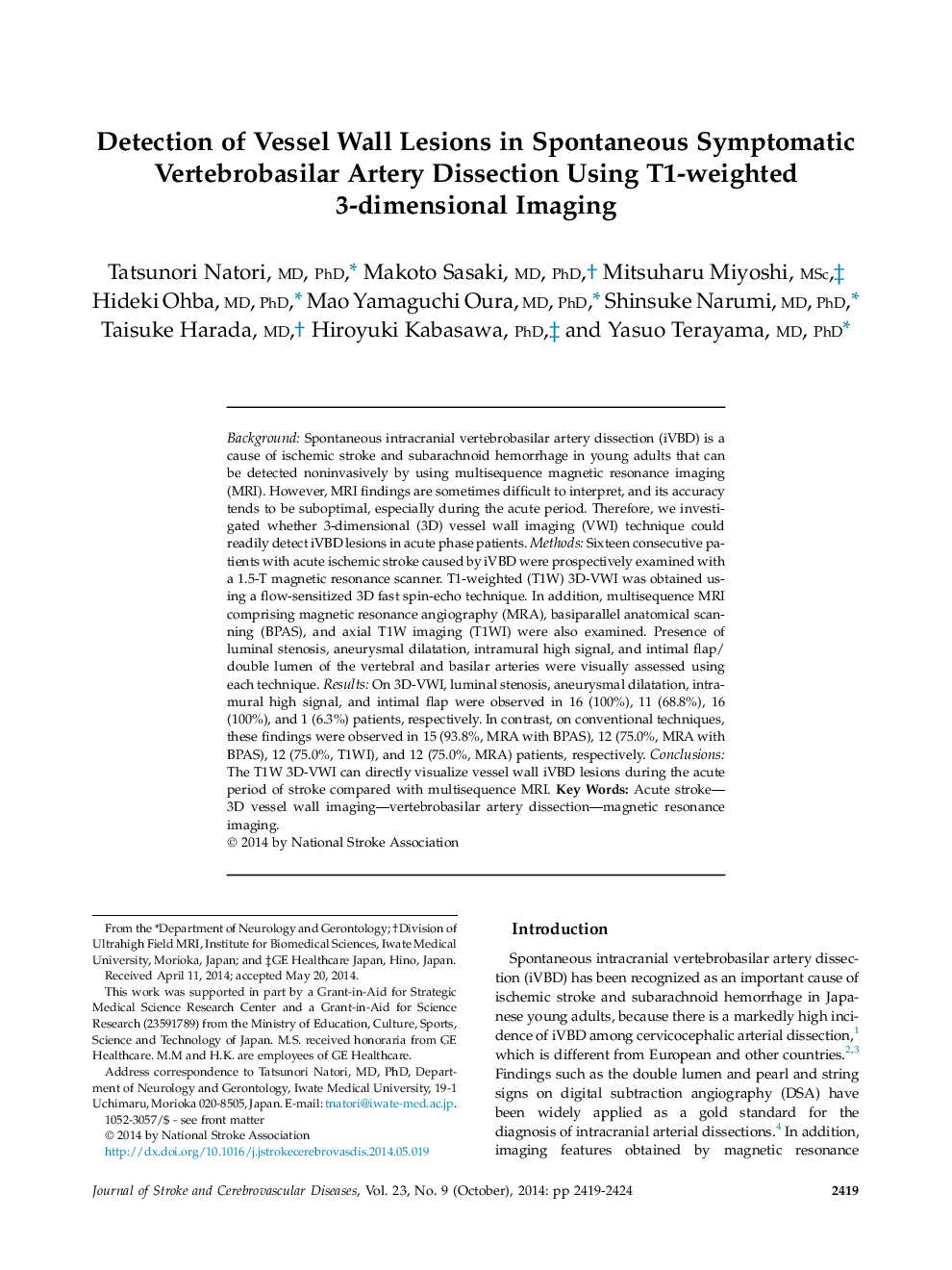| کد مقاله | کد نشریه | سال انتشار | مقاله انگلیسی | نسخه تمام متن |
|---|---|---|---|---|
| 2702511 | 1144540 | 2014 | 6 صفحه PDF | دانلود رایگان |

BackgroundSpontaneous intracranial vertebrobasilar artery dissection (iVBD) is a cause of ischemic stroke and subarachnoid hemorrhage in young adults that can be detected noninvasively by using multisequence magnetic resonance imaging (MRI). However, MRI findings are sometimes difficult to interpret, and its accuracy tends to be suboptimal, especially during the acute period. Therefore, we investigated whether 3-dimensional (3D) vessel wall imaging (VWI) technique could readily detect iVBD lesions in acute phase patients.MethodsSixteen consecutive patients with acute ischemic stroke caused by iVBD were prospectively examined with a 1.5-T magnetic resonance scanner. T1-weighted (T1W) 3D-VWI was obtained using a flow-sensitized 3D fast spin-echo technique. In addition, multisequence MRI comprising magnetic resonance angiography (MRA), basiparallel anatomical scanning (BPAS), and axial T1W imaging (T1WI) were also examined. Presence of luminal stenosis, aneurysmal dilatation, intramural high signal, and intimal flap/double lumen of the vertebral and basilar arteries were visually assessed using each technique.ResultsOn 3D-VWI, luminal stenosis, aneurysmal dilatation, intramural high signal, and intimal flap were observed in 16 (100%), 11 (68.8%), 16 (100%), and 1 (6.3%) patients, respectively. In contrast, on conventional techniques, these findings were observed in 15 (93.8%, MRA with BPAS), 12 (75.0%, MRA with BPAS), 12 (75.0%, T1WI), and 12 (75.0%, MRA) patients, respectively.ConclusionsThe T1W 3D-VWI can directly visualize vessel wall iVBD lesions during the acute period of stroke compared with multisequence MRI.
Journal: Journal of Stroke and Cerebrovascular Diseases - Volume 23, Issue 9, October 2014, Pages 2419–2424